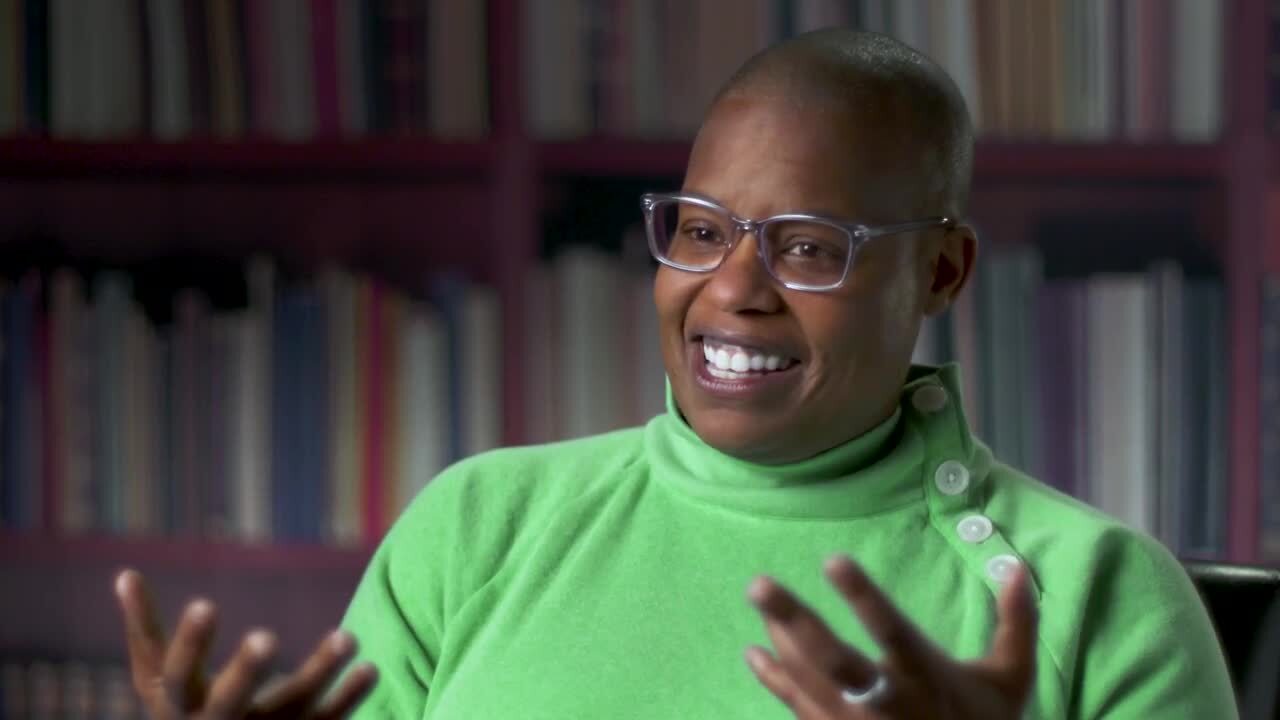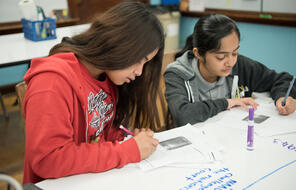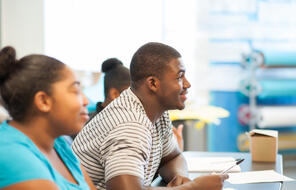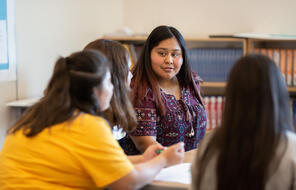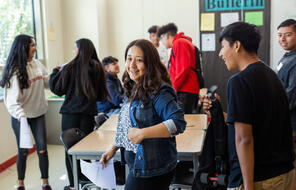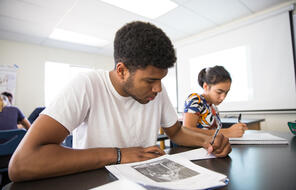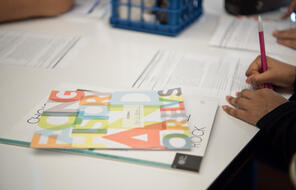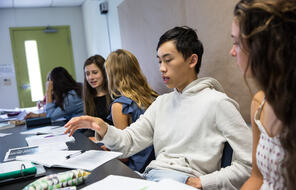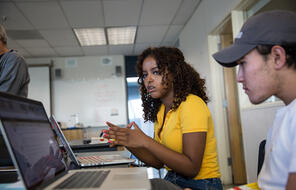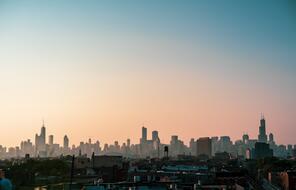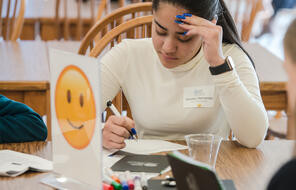KIM PARKER: People are really thinking about what does it mean to diversify one's curriculum. But I think that first, before we do that, we have to think about what's the internal work that we have to do before we even do that. Because if we don't do that work, even the most diverse text can be damaging for kids.
We have to start with ourselves. what's the work I have to do? Why do I really want to put different books in kids' hands? Am I ready? But also to think that we're never going to-- like, whatever readiness looks like, you just have to start.
And then to think about what's the preparation I need? When I start with myself, I think first about who are my students, and what do I need to know, one to be culturally competent myself, in my own Blackness, and then also to be culturally competent for them. So those are the big questions too.
And then I realized too that if I don't share the background with my students, then I'm going to have to really figure that out, and that can be through reading, immersing myself in the communities, listening to them. Like, where do they live? I've been really fortunate over the years to live in the neighborhoods where I've taught for much of the time. So just by going to places, seeing their parents, all of those things, you're getting a really solid understanding of who are my kids when they're not here.
Also to think about where are my own gaps. When I surveyed my students in thinking about the classroom libraries, I do not necessarily love science fiction and fantasy. I just don't. I'm working on it. Growth I don't love science fiction and fantasy yet.
But the kids do. And so that was my gap. So there's a mismatch there. They want the books, I have to get the books. And so if I had not asked them, though, I would not have known. And also that means that I'm going to have to start reading a little bit more science fiction and fantasy so I can really engage with them as readers.
In terms of my own other sort of opportunities to sort of really become more culturally competent, I have to think sort of those identity markers. And where are sort of the spaces where I need to do more reading? And I've been really thinking about disability right now, because I think when we're talking about intersectionality, for me that's the one area of many, because we all have many areas, that I'm like, oh, so if I'm really thought talking about equity, who am I not talking about?
And I can go back and look at things I've written, books that I'm reading, my own bookshelves. I'm like, who's missing? My own life. And I always think about too I'm talking to teachers all the time about what's the work we have to do, what's my own work?
And so that's where I've been really digging into finding out more, listening to own voices. Who are the disability activists? Where are they? Where's the work? How do I become a really great co-conspirator? Because there's always work to be done.
Probably most important is that you love our kids. I always love my kids. Even the ones that were the hardest. And I think for BIPOC kids, we need to love them. Our BIPOC kids, our kids with disabilities, our queer kids.
And that means we have to do our own work to really see them, and to really show up for them, and to be excellent for them. Because kids are suffering in ways that have been so extraordinary in this particular moment. And they need us to be the people that we're supposed to be for them. So we just need to be those people.
